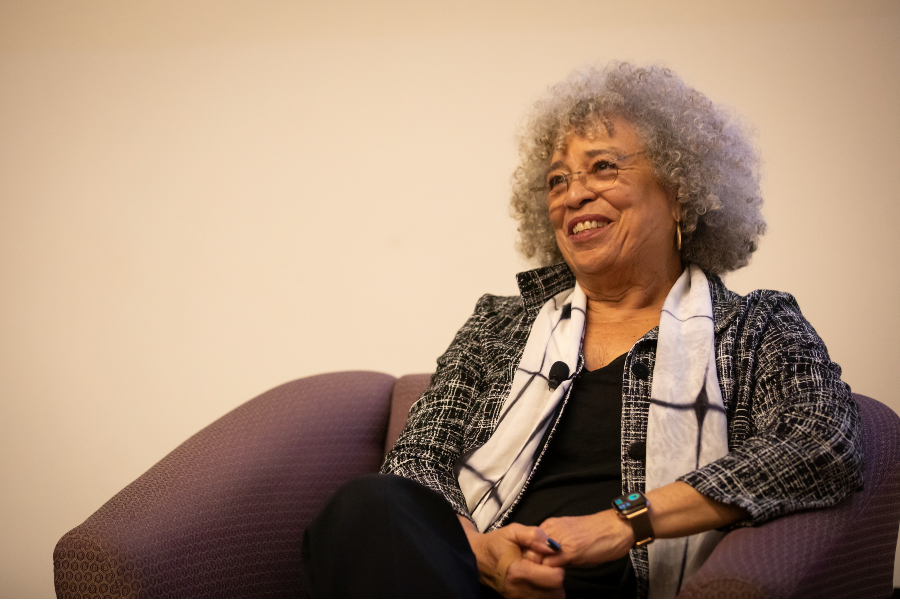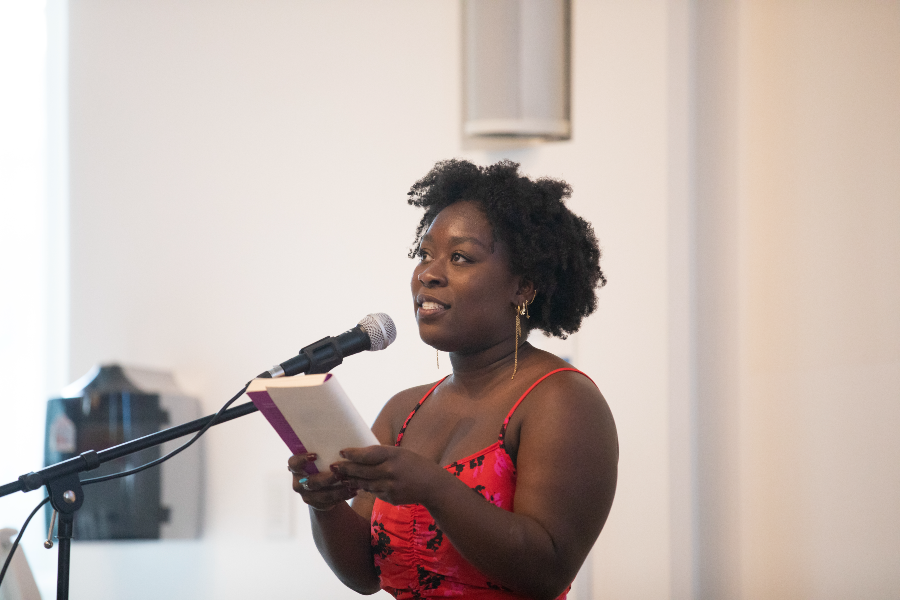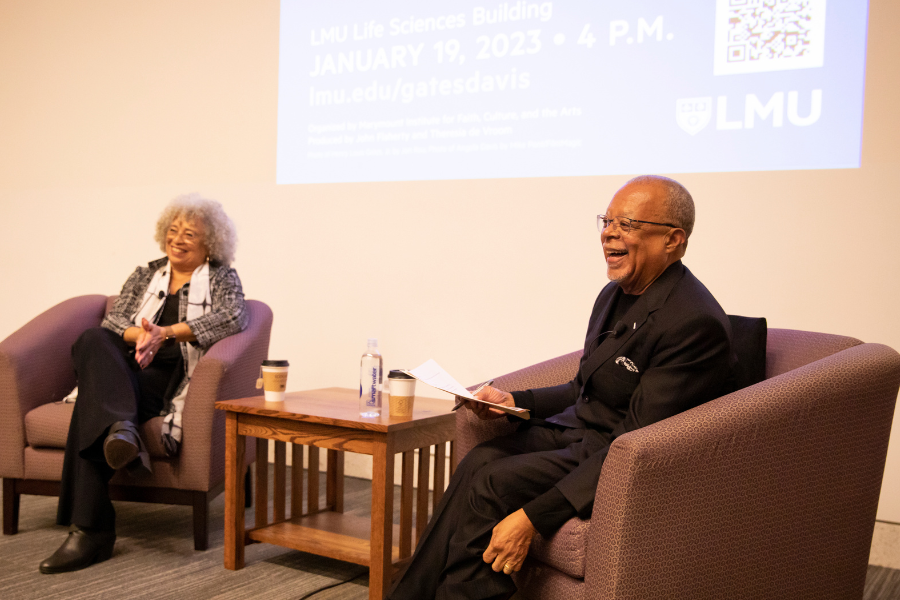
Educator, author, philosopher, and activist Angela Davis opened up to an overflow crowd at Loyola Marymount University on Thursday, Jan. 18, 2023, in a conversation that enlightened and entertained the audience, weaving her life’s experience, contemplations, and family history discoveries.
Davis, among the country’s leading public intellectuals, was led by her longtime friend Henry Louis Gates Jr. on a very personal journey through an episode of his award-winning PBS series “Finding Your Roots.” The surprises uncovered in Davis’ background were enhanced during the LMU Global Conversations Series interview by her keen insights into history and social psychology.
“I’m proud of a lifelong commitment to resistance,” Davis said in the TV segment, which was premiered for the LMU event and airs on Feb. 21. Gates added that Davis “comes by it naturally,” remarking on the many activists in Davis’ family history. The tone of the afternoon was set by Nona Pittman ’23, who gave the invocation in the form of reading the 1971 open letter from James Baldwin to Davis: “Some of us, white and black, know how great a price has already been paid to bring into existence a new consciousness, a new people, an unprecedented nation. … If we know, then we must fight for your life as though it were our own — which it is …”

Davis renewed her connections to LMU, too. She first spoke in St. Robert’s Auditorium in 1969 as her renown was growing; this time, in attendance at Featherston Life Sciences Building were Bob Singleton, LMU professor emeritus, and Helen Singleton, M.A. ’85, who were colleagues of Davis’ at UCLA in the 1970s and were part of the Angela Davis Defense Committee.
Along with the Singletons, who received a standing ovation when they were introduced by Executive Vice President and Provost Thomas Poon, Ph.D., dignitaries included Cornel West, the Dietrich Bonhoeffer Chair at Union Theological Seminary and a previous Global Conversation participant; Lane Bove, retired senior vice president of Student Affairs at LMU; and a large group of sisters of the Religious of the Sacred Heart of Mary.
Among the interesting revelations about Davis from the “Finding Your Roots” segment, which also featured Jeh Johnson, former secretary of Homeland Security:
- Davis, who was born in Birmingham, Alabama, in 1944, said that she always had a sense about segregation — that “this is not the way it’s supposed to be” — and she “imagined a better future,” a vision of the future that her mother encouraged;
- Davis said she learned how to be a public person when she spent 16 months in jail – she was acquitted on all charges – when she saw the “amazing movement grow” demanding her freedom. While in jail, she realized that “people can struggle, can resist, can win”;
- That her background is a mix of black and white people, with roots in the American Revolution – she said she feels “the Revolution should have gone further” – and one family line can be traced to a passenger on the Mayflower, which drew an audible gasp from the audience.

Davis’ response to this trove of information was typically philosophical: “This is good to know, but they are not necessarily my people.” Davis stressed that this is a case where “being critical and appreciative” can work side by side; Gates called that the scholar’s mind. “Every person’s legacy is interesting,” Davis said, and the information had left her feeling “complicated and contradictory.”
In the conversation that followed, the two academics easily talked about Davis’ history, questions of identity, the sociology of racism, and the “contradictions that drive us.”
Davis noted that the “system of racism was imposed on everything in their [her white ancestors’] lives; told them to believe in white supremacy,” that they too were burdened by systemic racism. “I grew up in a time of segregation,” Davis said, “when we always talked about ‘our people’ as Black people because we were struggling against racism. Identity is more of a political choice than a matter of DNA.”
She expressed her skepticism of DNA technology, noting that “there are people who are convicted on DNA evidence, and it’s not convincing.”
Gates asked Davis how she found out she was on the FBI’s Most-Wanted List. Davis said it was 1970, before her October arrest while she “made herself unavailable to the FBI,” and she was in Florida, watching the television show “The FBI.” At the end of the episode, when the producers presented a real-life person on the most-wanted list, there she was.
When Gates asked her about being a larger-than-life symbol, Davis reflected and then talked about a group of high school students in the foster care system who were exploring their college prospects. One young woman was wearing a T-shirt with a large image of Davis. She said she normally passes by this kind of encounter, but this time Davis asked the student about it. She said the student really didn’t know Davis’ background or reputation, but the young woman said, “it makes me feel strong.” And in that, Davis said, she realized it wasn’t about her, it was about the community coming together.
Davis said that she is still committed to struggling for a better world, and that change takes time. She noted that we are “still in the moment of the George Floyd lynching … we must continue the fight.”



Event Organized by:
The Marymount Institute for Faith, Culture, and the Arts
About the Marymount Institute for Faith, Culture, and the Arts:
The Marymount Institute for Faith, Culture, and the Arts preserves the transformative educational tradition of the Religious of the Sacred Heart of Mary and promotes dialogue between faith and culture as expressed in the fine, performing, literary, and communication arts.



